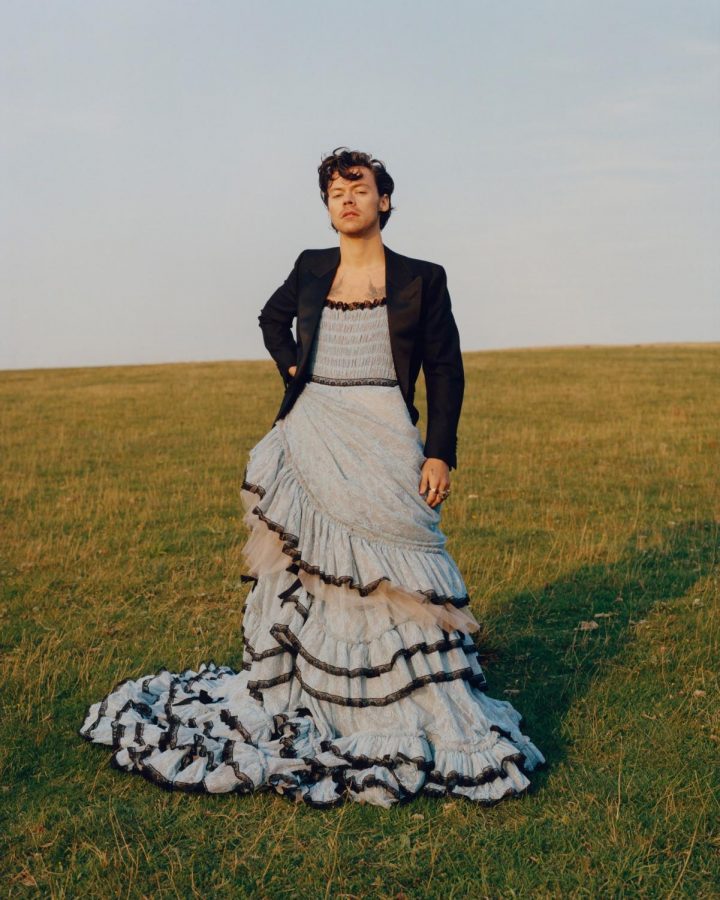Let Men Express Themselves
Tyler Mitchell, Vogue, December 2020
Harry Styles poses in a lacy dress and tuxedo jacket made by Gucci’s Alessandro Michele.
February 26, 2021
“Bring back manly men.” Conservative commentator Candace Owens tweeted this on Nov. 14, 2020.
Her ignorant statement was a direct response to the Vogue cover on the December 2020 issue, in which Harry Styles posed in a dress. He became the first man to be featured solo on the cover of Vogue.
“There is no society that can survive without strong men. The East knows this,” Owens wrote. “In the west, the steady feminization of our men at the same time that Marxism is being taught to our children is not a coincidence. It is an outright attack.”
The response to Owens’ sentiment was mixed. Some disagreed, while others stated they found Styles wearing a dress laughable or uncomfortable. This policing on what men can and can’t wear reflects the assumed roles of men in the world today.
“Masculinity and femininity exist. Outward indicators of masculinity and femininity exist in nearly every human culture,” Ben Shapiro, another popular conservative commentator, wrote in response to Owens. “Boys are taught to be more masculine in virtually every human culture because the role of men is not always the same as the role of women.”
Gender roles may have been beneficial in the early stages of civilization. We needed a group of hunters and protectors and a group of nurturers and child-bearers. However, these roles don’t translate well to modern society. Women work now. Men can take care of children. Over time, we have begun to realize these archaic roles are arbitrary.
Yet society clings to the masculine stereotype, that men must be strong and never show vulnerability. Parents imply or outright instruct young boys to hold back their tears because expressing emotions is a sign of weakness. These ideas have conditioned boys to never ask for help.
The perceived shame in asking for help leads fewer men to seek treatment for poor mental health and suicidal thoughts. Men die by suicide 3.5 times more than women. Women are twice as likely to be diagnosed with depression despite more men die of it. Outdated notions of how men should act have resulted in men avoiding help.
Let go of these stereotypes about how men are supposed to be. Forget the concept of boy toys and girl toys, boy clothes and girl clothes. Teach all children that kindness, love, empathy and asking for help is strong. Stop telling our youth that boys don’t cry.




























